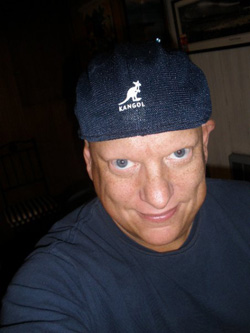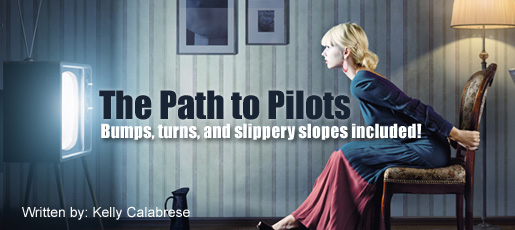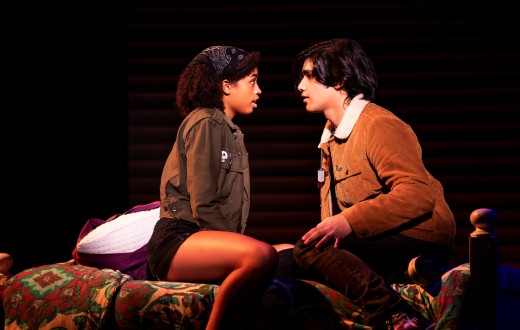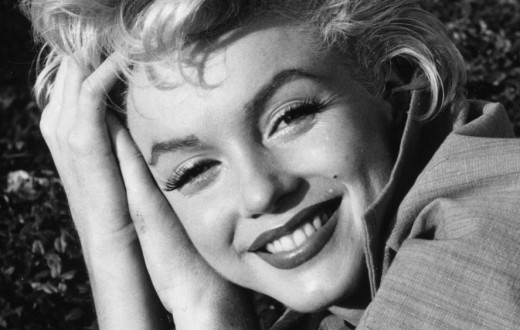Have a burning desire to act in a pilot? To write a web series? Or create your own new form of new media?
Steven Becker of Blue Carioca Entertainment knows what it takes to be successful, and has shared the many challenging and rewarding aspects of developing a project with NYCastings.
As an experienced writer, director, and producer, Steven has worked in New York as well as Los Angeles, Brazil, and various European countries. His background in finance and venture capital coupled with his diverse production work experience gives him balanced insight into both the creative and monetary aspects of the film making process. In addition, Steve has attended film festivals and their associated sales market functions all over the world which has given him invaluable exposure to the challenges of distribution in the ever evolving world of new media opportunities. His recent projects include Tompkins Square Triangles, Lower East Asides, and Parker & Maggie.
Most importantly, Steven believes in talented people.
His advice about pilots includes many of the bumps, turns, and slippery slopes because it’s what actors need to know – so they can be prepared, and place their focus on doing their best work.
Q&A with Steven Becker of Blue Carioca Entertainment.
How did you get started in TV?
 I was always a writer, but never wanted to do it as a profession because it was a passion and I didn’t want to sully it with money. My first job out of college was for CBS Sports, and on weekends I worked on live events. Then I went back to what I was trained in, which was finance. After doing that for a few years, I did well enough to take off and travel the world. I moved to Brazil, and while I was there I did a lot more writing. I had scripts I had already written. I had taken classes at NYU and The New School. I was always very passionate about film. I decided it was time to switch careers. It’s not smart to not work in a field that you’re not passionate about.
I was always a writer, but never wanted to do it as a profession because it was a passion and I didn’t want to sully it with money. My first job out of college was for CBS Sports, and on weekends I worked on live events. Then I went back to what I was trained in, which was finance. After doing that for a few years, I did well enough to take off and travel the world. I moved to Brazil, and while I was there I did a lot more writing. I had scripts I had already written. I had taken classes at NYU and The New School. I was always very passionate about film. I decided it was time to switch careers. It’s not smart to not work in a field that you’re not passionate about.
I moved to LA and made my first movie there, and worked as a producer. Because of my finance background, numbers come easy to me. While there, I was also very involved in casting and locations. When I moved back to NY, I kept my finance projects going as well as my film and TV ones.
What was your first experience with pilots?
I worked on a couple of pilots in LA that never went anywhere. And, I learned what not to do. I lived there from 2003 – 2006, and that is where TV was. It has become more equal in New York now, but back then you had to go to LA. There were a lot of spec pilots because everyone thought networks would love them. Back in New York, I worked on a few web series. After my first movie, I was offered to turn it into a TV show, so I wrote that six years ago and it looked like it was going to happen. But then the market collapsed in 2008. I decided to go independent, and will be shooting that pilot in the middle of August. It will be a three day shoot. I’m very confident with casting. We have people who are interested, and they want to see the first 15 minutes of the one hour dramedy.
Have any of your pilots been picked up?
A web series I worked on is in development. It is called Parker & Maggie. My last pilot has some interest too.
What does it take to get a pilot picked up?
I tell the people who work on my shoots… Last year, the four major networks ordered about 132 pilots that they paid for – meaning they heard the pitch that was brought in by a show producer and read the scripts. Of those 132 that have already gone through the process, which was weeded out of thousands, they picked up 16. That doesn’t count the thousands of others. If you go to smaller networks – AMC or HBO – how many shows do you see year? Two or three?
Breaking Bad was rejected by every network. AMC picked it up. There is a show on Sundance called The Writers Room that talks to writers of hit shows and they said Every network we pitched it to said they loved the show, but they’d be fired the day they pick up that show.
A show could be great and they still won’t do it because of subject matter. Or they have something similar to it.
With Mad Men they said, It’s kitschy, but who wants to watch a show about advertising.
No one knows what will happen. You are at the network’s mercy. Also, if you look at those shows, they had no name actors. They had talent. Even Mad Men, the most well-known actor was Elizabeth Moss who used to be on West Wing.
The same thing with Arrested Development. It was a critical success, but it had low ratings and they canceled it. But then they brought it back. So there is no sure formula.
Does an LA pilot have a better chance of success?
In acting and writing and directing – it is widely assumed that all the best actors and directors and producers are in Hollywood. So, for a studio that has the best Oscar winning writers and actors, how come the majority of their films are not very good? It’s because this is not a formula. It is a recipe. And until you mix it all together, you’re not going to know what it tastes like. You see it together, and you’re like I don’t believe those two are in love.
Theoretically, Hollywood should always make great TV and films because they have the best of the best. In independent film, you don’t have that option. That’s why as a filmmaker or TV show writer and producer, you are trying to capture lightning in a bottle. That magic.
What is the process of pitching the script?
There are 2 ways.
1. Sometimes people come to you because they heard about your script or a project you worked on before, and they want to know if you have anything new. They ask you to shoot it, and that doesn’t cost them anything. It’s like in dating when someone says that maybe we should do something sometime, and that sparks the project.
If you show them the script, they will ask, Who do you see as the actors? Whoever the actor is changes the role completely, so casting becomes very important. If someone does pick up your project, they want to see your vision of it, not just read it. We work in a visual medium. The pitches will only get you so far. There are people who make their living just pitching shows in LA, but those are people with established track records.
In the indie world, you shouldn’t have to explain the project. You show the project. It’s like when you go to an art show and someone tries to explain the painting. A person can’t tell you what it means. It means what it means to you.
2. You are sent by an agent, or manager or connection you know. You go in cold and have to say, I have this great idea.
Can an actor get their BIG break by doing a pilot?
I always get nervous when actors think this is going to be their big break, because that means their mind is in the wrong place. Their thoughts should be like this: This is what I want to do. This is what I went to school for, to be an actor. I will be a better actor because of it.
And, even if the show is not picked up, someone might see it and think, Hey, I like your work and I have this pilot or play that I am working on.
There is no substitute to being out there, and working. I never understood the mindset of, This is what is going to make me rich and famous. If that’s your goal, you should do reality shows.
The ones who I have found to be the best actors are the ones who generally enjoy it. They love acting and it is apparent.
So the joy of acting stands out to a director?
When you have a group of actors together on a set, you see it. Some people have it, and some don’t. And out of those who have it, there are only one or two who have something about them that just pops. It is in their soul.
From a director’s point of view, do you want actors whose passion is over the top – those who do this because they have to – or because they want to become rich and famous?
As an actor you may work on a project for a couple of days. But the director, who is often also the writer and editor, has worked on this for months beforehand and will work on it for months afterwards. From an ego point of view, it is great to hear that this will make people rich and famous. But realistically, there is a long way to go to make it even presentable. It will never go as fast as you want, and the thought of it making you rich is not going to drive you to be as good as you can be.
How long should a pilot be?
I’m looking at it from a producer’s point of view, and the network doesn’t want to see a full episode because they are never going to use it. And, the fact that they have to watch hundreds means that they want to see something like a three minute sizzle, or only a 10-15 minute clip.
Do web series have more success than pilots?
A web series can be shown. It can be placed on YouTube.
You can shoot a low budget web series with actor friends of yours, or you can partner up with people and everyone has an idea and you all work on it together.
To be picked up, that is something special.
How does a web series differ from a pilot?
With a web series, what usually happens is it is shot in five to six minute episodes. Six minutes is the limit. And then, from there, they try and put it together to make a pilot. So it is not exclusive. It is like cooking. You make achateaubriand today and tomorrow you are going to reformat it into a hamburger and fries, and then a soup. It shouldn’t have just one use. Good footage is good footage.
And from those six minutes, you also have to make a two minute sizzle teaser. And the more you know up front, the more you know to shoot a couple extra shots.
How long should you work on a project before moving on?
There is a fine line between constantly throwing spaghetti up against a wall, and having a game plan. You have to decide what new things to work on as you continue to work on others. You keep building. There is no deadline.
I am a very deadline oriented person, and it took me a long time to realize that it is done when it is done. You only get one chance as an actor, producer, or writer to make a good impression. They are either going to like it or not. And, the worst would be if you didn’t give it your best shot. If it isn’t something you are proud of, why show it?
What do people NOT know about pilots?
That there is a 99% chance that it will never be on television. It may be on YouTube, or you will have it for your reel. But it may never get on TV. We know this from the production side. That’s why when everything is not done perfectly, it is so frustrating. We are only shooting three days. Let’s try and get lightning in a bottle. Magic.
What is your advice for actors looking to get a role in pilots?
I tell actors, Just be you in the auditions. Enjoy it.
As a director or producer, you are going to see so many people. Who are you going to remember? The people who did something different. Who had genuine energy and a genuine smile. Those people might get through the door to a second round.
You have so many people giving you advice, and classes, and seminars. The best way to impress a director is to do plays and improv. You never know who will be in the audience. Just keep working.
What should actors avoid when they are trying to get considered for pilots?
I’ve been dragged to a couple of the networking parties and actors would come up to me and pitch me. They give me their cards. I would never hire an actor that way. I don’t hire an actor because I thought they were cool at a party, or because they send me emails. I hire them because I’ve seen them do something. The best promotion for yourself, is your own work. If you want to send me an email, send one to tell me that you are doing a run in a play. Fine, I get to see you in action. Christina Calph recently did that. (Christina is a NYCastings member, who was featured on Spotlight and also co-starred in one of Steven Becker’s recent projects). She sent me an email about the play she was in. But I am not going to hire you because I got your card at a luncheon.
What surprises you the most about actors, from the production side?
My concept of self-destruction. I cannot understand when an actor does all the work, they’ve gotten through the audition process, and then they get to the set with problems. They show up late and say, Oh my boyfriend or girlfriend this. I have never understood that. I have had so much of that lately, and it sucks your energy out. You are counting on this person to deliver a role, and in the last second they come in with the whole diva concept – whether male or female. It is self-destructive behavior. It is a complete waste of time.
Those are people who don’t work again because it is a very small community in New York.
What is important when developing a pilot, beyond a good script?
People may say they love the script. But I’ve learned that how the words sound in your head, are not how it will sound in the audition or the final product.
How many times have I heard, Your script I so good, we are definitely going to Sundance with it.
My background is improv. And as good as the script is, if half of the script ends up in the final version I will be happy because it is written in my head, not as the actor would say it.
Are there trends in pilots?
As a writer, it is banged into our heads from the beginning – What is your point? What are you trying to say? It’s the same with networks. You aren’t going to pitch a violent drama with nudity to NBC because they can’t show it.
If you are trying to fit your idea into a trend, you are doing the wrong thing because you are trying to fit what the audience wants instead of the best that the project needs.
Write what you are interested in, and bring your twist to it.
Do something good, and one day something really good is going to happen for you.
How much does change from the spec pilot to the first episode?
It is sad to say from an actor’s point of view, but they will always change something. Even if it was perfect, they will re-shoot it. They might want to change the actor, or get a better apartment. Even if they like everything about it, they might make little changes for the sake of making changes.
Is improv important for actors who want to be cast in pilots?
My background is improv and sketch comedy. I’ve learned that you can do 20 minutes of improv, and that can turn into hours of good material. Improv actors are good at certain things, but they aren’t good at repeating a scene or creating a character. They are good at being a character. Improv actors usually give great auditions because they are comfortable thinking on their feet and adding their own thing.
To create a structured TV series, it has to be repeated. People should always have improv background, because it helps you think fast. It removes fears and helps with auditions, which is unfortunately a key part of your lively hood. But then, if you also do a lot of plays, learn lines, and work on pacing yourself within that realm and repeating that performance – if you have a combinations of both improv and theatrical and some film where you know you have to make yourself smaller because the camera can see every crinkle in your eye – if you get those three disciplines together – you are dealing with a powerful, multi-layered performer.
Why should an actor work on a pilot, despite the challenges?
Remember, as an actor you may only be there for three days of shooting, but the director, producer, writer, and editor will see your face over and over again. If there are parts that are bad, then they can’t fix the scene and they will remember that. But on the good side, they can think I love this girl or this guy is great. It may seem like five minutes of your time on screen, but it is forever to me.
As an actor, you should remind yourself that you went to years of acting school, and at an audition is when you should be your best and happiest. We can see it. When someone is generally enthused, you can see that their endorphins are pumping. You can see it, and you can feel it. If someone is coming in rushed and they’re 15 minutes late and frazzled, they have already shot themselves in the foot. Maybe they can still do a good job, but in your own mind you have to remind yourself that this is your dream. This is your passion to be able to perform for someone. Enjoy it. You do that, and good things are going to happen.
In acting, as in everything in life, you have to put yourself in a position where good things can happen. And, preparation makes success.
In the end, talent shines through.
I believe in talented people.







